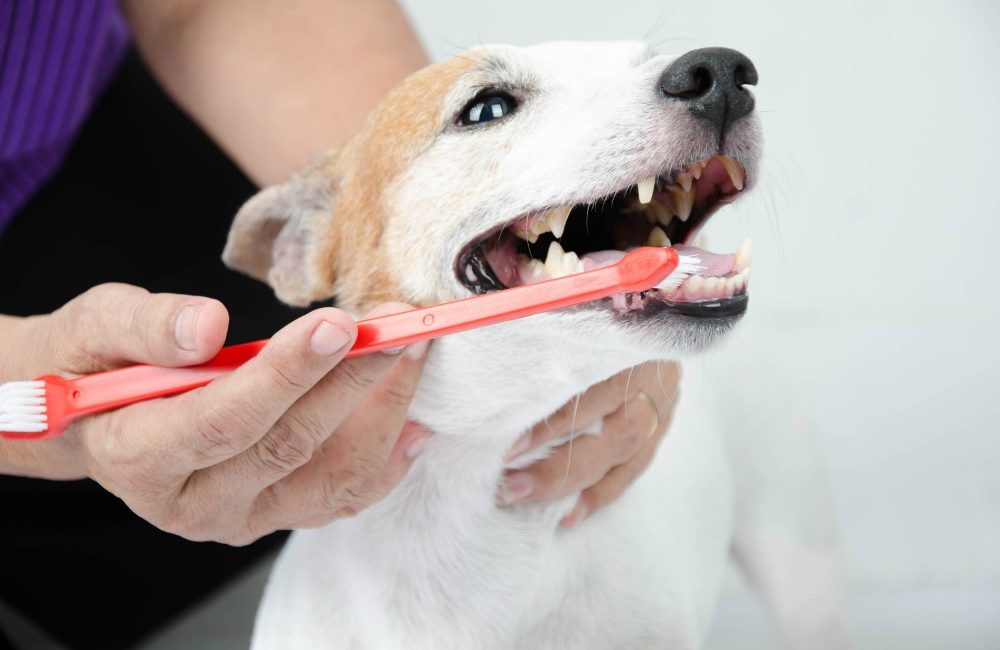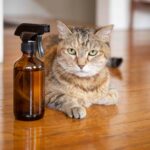Table of Contents
Good dental hygiene is crucial for your pet’s overall health. Neglecting their oral care can lead to serious health issues, including gum disease, tooth loss, and infections. This guide provides essential pet dental hygiene tips to help keep your furry friend’s teeth and gums healthy.

Understanding the Importance of Pet Dental Care
Just like humans, pets need regular dental care to maintain their oral health. Poor dental hygiene can lead to plaque buildup, bad breath, and more serious conditions like periodontal disease. By following these pet dental hygiene tips, you can help prevent these issues and ensure your pet’s teeth stay strong and healthy.
1. Brush Your Pet’s Teeth Regularly
Brushing your pet’s teeth is the most effective way to prevent plaque and tartar buildup. Here’s how to do it properly:
- Use Pet-Specific Toothpaste: Human toothpaste can be harmful to pets. Use toothpaste specially formulated for pets, available in flavors like poultry or beef to make the experience more enjoyable for them.
- Start Slowly: If your pet is not used to having their teeth brushed, start slowly. Let them sniff and taste the toothpaste, and gradually introduce the toothbrush.
- Brush Gently: Brush your pet’s teeth gently in a circular motion, focusing on the gum line where plaque tends to accumulate.
2. Provide Dental Chews and Toys
Dental chews and toys can help reduce plaque and tartar buildup by stimulating your pet’s gums and cleaning their teeth as they chew. Choose products designed specifically for dental health:
- Rawhide Chews: These can be effective in reducing plaque, but ensure they are appropriately sized to prevent choking hazards.
- Dental Chew Toys: Look for toys with textures that help clean teeth and massage gums while your pet plays.
- Natural Chews: Items like carrot sticks or specially designed dental treats can also be beneficial.
3. Regular Veterinary Dental Check-Ups
Regular veterinary check-ups are essential for maintaining your pet’s oral health. Your vet can identify and treat potential issues before they become serious problems:
- Annual Exams: Schedule a dental check-up at least once a year. Your vet will perform a thorough cleaning and examination of your pet’s teeth and gums.
- Professional Cleanings: In addition to at-home care, your vet may recommend professional cleanings to remove stubborn tartar and plaque.
- Early Detection: Regular check-ups help detect issues like broken teeth, infections, and gum disease early, making treatment more effective.
4. Use Dental Wipes and Rinses
Dental wipes and rinses can be a convenient alternative if your pet is resistant to toothbrushing. These products can help reduce plaque and freshen breath:
- Dental Wipes: Use pet dental wipes to wipe your pet’s teeth and gums, which can help remove plaque and bacteria.
- Oral Rinses: Add pet-safe oral rinses to your pet’s water bowl to help maintain oral hygiene and freshen breath.
5. Maintain a Healthy Diet
A balanced diet plays a significant role in your pet’s dental health. Certain foods can help clean teeth and prevent plaque buildup:
- Dry Food: Dry kibble can help reduce plaque and tartar buildup compared to wet food.
- Dental Diets: Some pet food brands offer specially formulated dental diets designed to promote oral health.
- Healthy Treats: Choose treats that support dental health and avoid those high in sugar and starch.
6. Monitor Your Pet’s Oral Health
Regularly check your pet’s mouth for signs of dental problems. Early detection can prevent more severe issues from developing:
- Look for Signs: Watch for signs of dental disease such as bad breath, red or swollen gums, loose teeth, and excessive drooling.
- Regular Inspections: Gently lift your pet’s lips and inspect their teeth and gums regularly. Note any changes or abnormalities and consult your vet if necessary.
7. Natural Remedies for Dental Health
Several natural remedies can support your pet’s dental health. These can be used alongside regular brushing and veterinary care:
- Coconut Oil: Coconut oil has antimicrobial properties and can be applied to your pet’s teeth to help reduce plaque.
- Parsley: Adding parsley to your pet’s diet can help freshen their breath naturally.
- Carrots and Apples: Crunchy fruits and vegetables like carrots and apples can help clean your pet’s teeth naturally while providing a healthy treat.
Conclusion on Pet Dental Hygiene Tips
Maintaining good dental hygiene is essential for your pet’s overall health and well-being. By following these pet dental hygiene tips, you can help prevent dental issues and ensure your pet has a healthy, happy smile. Regular brushing, a balanced diet, and professional veterinary care are key to keeping your pet’s teeth and gums in excellent condition. For more tips on pet care, visit the ASPCA and AKC.
FAQs on Pet Dental Hygiene Tips
How often should I brush my pet’s teeth?
Ideally, you should brush your pet’s teeth daily. However, brushing at least 2-3 times a week can still be beneficial.
What are the signs of dental disease in pets?
Signs of dental disease include bad breath, red or swollen gums, loose or missing teeth, excessive drooling, and difficulty eating.
Are dental chews effective for maintaining oral health?
Yes, dental chews can help reduce plaque and tartar buildup and promote healthy gums. However, they should not replace regular brushing and veterinary care.
Can my pet’s diet affect their dental health?
Yes, a healthy diet plays a significant role in maintaining dental health. Dry kibble and specially formulated dental diets can help reduce plaque buildup.
What should I do if my pet has bad breath?
Bad breath can be a sign of dental disease or other health issues. Consult your vet to determine the cause and appropriate treatment.
Are there any natural remedies for pet dental care?
Yes, natural remedies like coconut oil, parsley, and crunchy fruits and vegetables can support dental health. These should be used alongside regular brushing and veterinary care.











